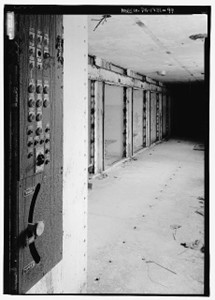Middle Temple Library holds three exhibitions a year to highlight special collections held by the Inn. Below you can find the latest exhibition and also view previous exhibitions online.
‘The Bloody Code’: Capital Punishment in Law and Art

This exhibition has been curated in collaboration with Art Responders, a community arts organisation that develops free public exhibitions on social justice and human rights themes. The curators are Daryl Stenvoll-Wells, the founding director of Art Responders, and Lauren Cummings, Assistant Librarian at Middle Temple Library.
Though its roots go back much further, the 18th century marked the beginning of developed societies’ drive towards universal abolition of the death penalty. Since then, most countries have moved in this direction, while others have instead reinforced capital punishment via new methods and justifications. While this year marks the 60th anniversary of the UK’s Murder (Abolition of the Death Penalty) Act 1965, the British use of capital punishment stretches back centuries. The history of capital punishment law lays bare persistent tensions within the nation’s political institutions and social structures and reflects larger historical shifts worldwide.
The UN’s 1948 Declaration of Human Rights, including the right to life, steered the international community away from the use of capital punishment. More than two-thirds of countries have abolished the death penalty in law or practice. However, capital punishment remains remarkably resilient in the 55 nations that retain it, often employing contemporary methods that are no less cruel or unusual than those of the past.
Middle Temple Library’s collection offers a rich historical record of capital punishment law, tracing its evolution across the centuries through legislative documents, historical narratives, and personal accounts. Examining the historical trajectory of the death penalty enables legal professionals to situate modern legal theories of capital punishment law within the broader framework of global human rights legislation.
An online version of the exhibition is available to view here
Previous Exhibitions
2025 marks eighty years since the end of the Second World War. Using material from the Inn’s Archive and Library collections, this exhibition explores the wartime experience of the Middle Temple and its members... View online
This exhibition celebrates Middle Temple Library's significant collection of sixteenth and seventeenth century books published in Spain, and includes some items from the Inn's Archive on the War of the Spanish Succession of 1701 - 1714... View online
It was common for a learned gentleman to amass a private library consisting of thousands of volumes in the sixteeth and seventeenth centuries. This exhibition displays some of Middle Temple Library's rare books, including those donated from such private collections, visualising what a gentleman's bookshelf looked like in these earlier centuries... View online
This exhibition explores a range of pre-1700 books from the Library, and items from the Inn’s Archive, highlighting topics such as recreation, literary culture at the Inns, religion and preaching, learning the law and verbal skills, travel and exploration endeavours... View Online.
An exhibition exploring how this important document has evolved over the centuries to arrive at its current form. From Plea Rolls to Year Books, manuscripts to nominates, to digitisation and beyond...View online
Last year, the Inn celebrated 450 years since the completion of Middle Temple Hall. This exhibition told the story of the Hall, from its construction in the reign of Elizabeth I to the present day, via renovations and reinventions, blazes and bombing raids.
An exhibition exploring astronomical manuscripts from the Medieval and Renaissance periods, European translations of the Quran, verses from the Quran relating to astronomy and Renaissance books...View online
An exhibition exploring the impact of epidemics on public health law. From plagues to the present, this display looks at the way public officials manage the spread of disease, as they try to understand the causes of illness...View online
Plants provide the foundation for nearly all life on earth. The chloroplasts in green plants provide some 70% of our breathable oxygen and sit at the centre of countless ecosystems. By the same token, plants are essential to human life and...View online
The story of policing in London is a mutable and ever-changing one. The earliest recorded effort to establish a formal system of policing can be traced back to the reign of King Edward I in his statute of 1285...View online
2019 marked the 100th anniversary of the passing of the Sex Disqualification (Removal) Act of 1919. The passing of this Act allowed women to become practising solicitors and barristers in an official capacity...View online